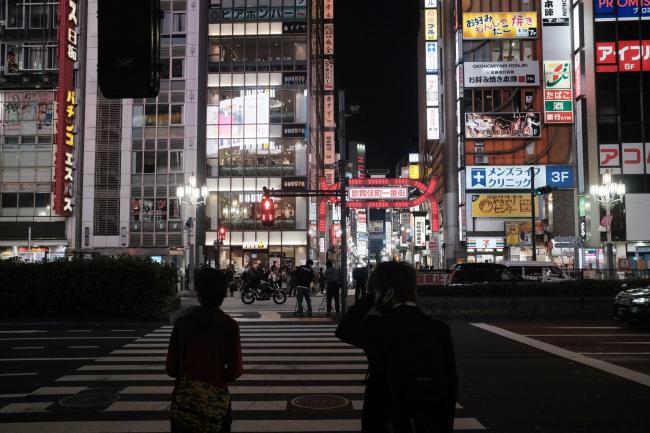(Bloomberg) -- The Japanese government is set to add three more prefectures to the coronavirus state of emergency, as it confronts a worsening surge just over two months before Tokyo is set to host the Olympics.
Yasutoshi Nishimura, the minister in charge of the government’s Covid response, told reporters Friday the emergency will be expanded to the northern island of Hokkaido as well as Hiroshima and Okayama prefectures, and will be effective May 16 through the end of the month.
Prime Minister Yoshihide Suga was set to hold a news conference at 8 p.m. Friday to discuss the emergency declaration that already covers Tokyo and several other major metro areas. He is facing public criticism for pressing ahead with the global sports spectacle amid worries it could be a superspreader event. The country’s vaccination rollout ranks among the slowest in the developed world -- hampering Japan’s fight to stem infections.
By contrast with past practice, the decision appears to have been led by experts, who have previously appeared to rubber-stamp government decisions. Nishimura told reporters the emergency would be expanded more broadly than initially planned after experts called for stronger measures at a panel meeting Friday morning.
With the Olympics set to start on July 23, Suga has few tools to curb infections. The restrictions mean that bars and restaurants are made to close at 8 p.m. and banned from selling alcohol, while some large stores are closed. The move also increases the risk that Japan will fall back into recession and comes after some regional leaders this week called for the emergency to be expanded nationwide.
Virus management is crucial for Suga, who faces a party leadership election in September and must hold a general election by the end of October. While none of the opposition parties has enough backing to topple his ruling Liberal Democratic Party, sliding support could prompt the LDP to replace him as premier.
The current emergency measure covers Tokyo, Osaka, Hyogo, Kyoto, Aichi and Fukuoka prefectures, which make up about 40% of the country’s economy. Data released Thursday showed the mood among store managers and others who deal directly with customers last month suffered its worst drop since March 2020.
Japan’s Olympic preparations were dealt a blow this week when the powerful U.S. national track & field team canceled its training planned outside Tokyo due to safety concerns. Hokkaido, soon be under the emergency, is due to host marathon events that were moved to the northern island before the pandemic began to keep runners out of the oppressive Tokyo summer heat.
The number of people in serious condition in Japan due to the virus was at its highest level since the pandemic began, at 1,200. New nationwide daily infections rose to just over 7,000 Wednesday, compared with a peak of almost 8,000 reached in January.
Meanwhile, Japan has administered enough doses of vaccine to cover just 1.9% of its population, compared with 41.5% in the U.S. and putting it well behind developing countries like Myanmar and Bangladesh.
©2021 Bloomberg L.P.

